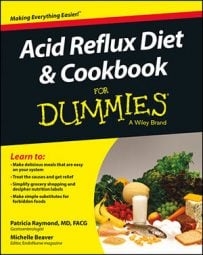Asthma and acid reflux often go hand in hand, although the exact link between the two has been hard for physicians to determine. In fact, approximately 75 percent of people who suffer from asthma also experience frequent heartburn or have been diagnosed with gastroesophageal reflux disease (GERD). People who have asthma are more than twice as likely to develop GERD as those who don’t.
Study after study has shown a link between asthma and acid reflux, but there has yet to be a study that proves a causal link in either direction. Despite the lack of causal evidence, most doctors attribute the development of asthma to reflux or GERD under certain circumstances.
For instance, adult-onset asthma is often attributed to complications related to GERD. Your physician may also suspect GERD to be the culprit if you find your asthma attacks occur more often after a meal. If your asthma doesn’t respond to the usual forms of treatment, it could be another sign that it’s a result of your reflux.
There are two main theories as to how acid reflux causes or worsens a person’s asthma. One is that the stomach acid released by reflux can inflame the airways and lungs. This makes you more susceptible and sensitive to outside effects such as cigarette smoke, pollution, dust, and even cold air.
The other theory has to do with the impact stomach acid has on nerves in your airway. It’s believed that acid in the esophagus can trigger a nerve reflux, causing airways to constrict and making it difficult to breath.
Some medications used to treat asthma can worsen or even trigger acid reflux. The medication most commonly associated with worsening reflux symptoms is theophylline. Bronchodilators have also been shown to weaken the LES, making it more likely to allow material to reflux.
If you’re taking one of these medications and find that your reflux symptoms are getting worse, consider asking you doctor about different methods of treatment that won’t inflame your reflux.

